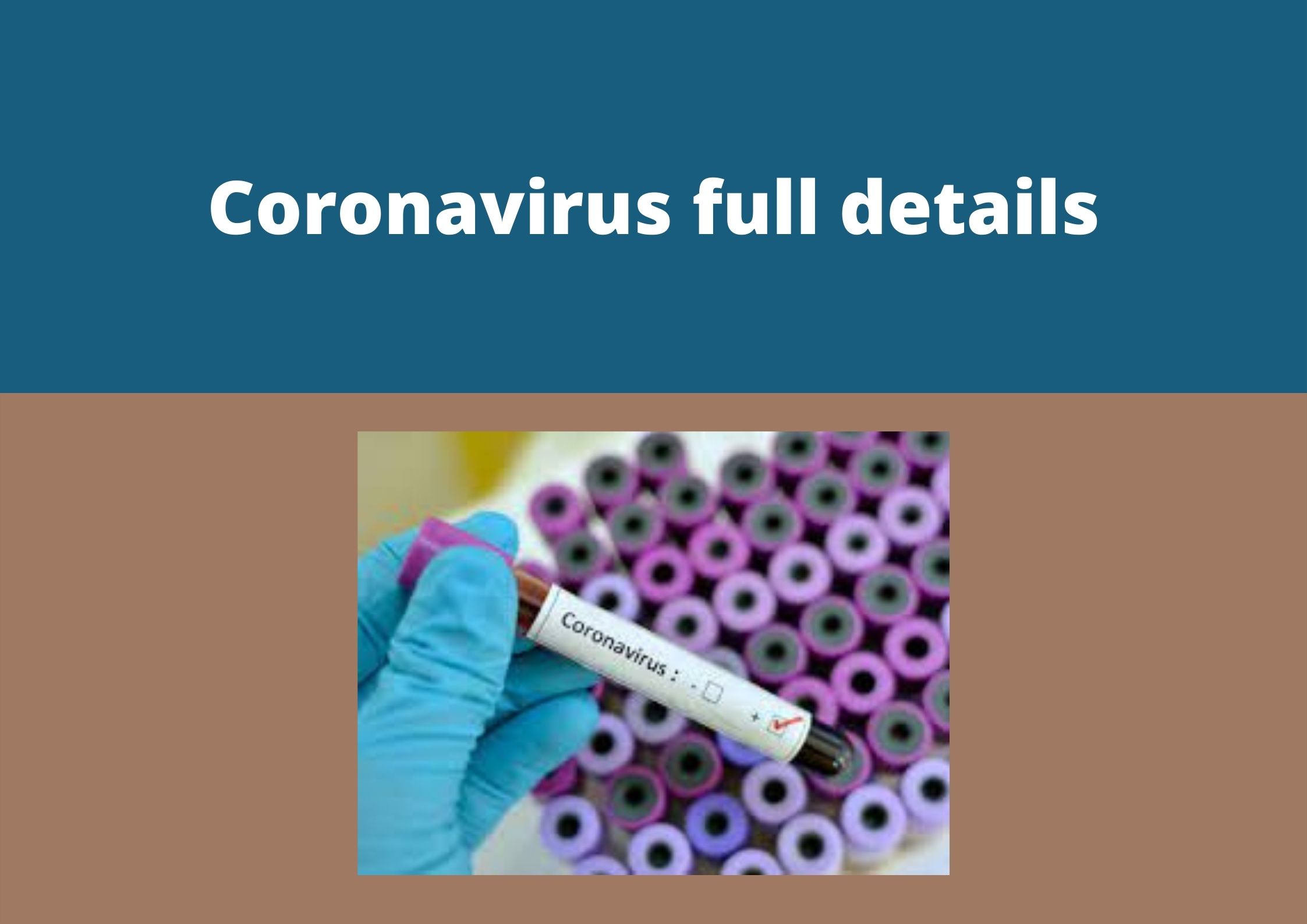Coronavirus full details @who.int
WHO has declared a global health emergency over a corona virus details that has killed at least 317 people in China and 1 in philippines, 4-6 positive in india, who declared information about of corona virus. all details in this post
Coronaviruses (CoV) are a large family of viruses that cause illness ranging from the common cold to more severe diseases such as Middle East Respiratory Syndrome (MERS-CoV) and Severe Acute Respiratory Syndrome (SARS-CoV). A novel coronavirus is a new strain that has not been previously identified in humans. In humans they’re typically spread via airborne droplets of fluid produced by infected individuals.
First time described in details in 1960, the coronavirus gets its name from a distinctive corona.
Coronaviruses are zoonotic, meaning they are transmitted between animals and people. Detailed investigations found that SARS-CoV was transmitted from civet cats to humans and MERS-CoV from dromedary camels to humans. Several known coronaviruses are circulating in animals that have not yet infected humans.
Common signs of infection include respiratory symptoms, fever, cough, shortness of breath and breathing difficulties. In more severe cases, infection can cause pneumonia, severe acute respiratory syndrome, kidney failure and even death.
Standard recommendations to prevent infection spread include regular hand washing, covering mouth and nose when coughing and sneezing, thoroughly cooking meat and eggs. Avoid close contact with anyone showing symptoms of respiratory illness such as coughing and sneezing.
How to protect your self (corona virus)
Frequently clean hands by using alcohol-based hand rub or soap and water;
When coughing and sneezing cover mouth and nose with flexed elbow or tissue – throw tissue away immediately and wash hands;
Avoid close contact with anyone who has fever and cough;
If you have fever, cough and difficulty breathing seek medical care early and share previous travel history with your health care provider;
When visiting live markets in areas currently experiencing cases of novel coronavirus, avoid direct unprotected contact with live animals and surfaces in contact with animals;
The consumption of raw or undercooked animal products should be avoided. Raw meat, milk or animal organs should be handled with care, to avoid cross-contamination with uncooked foods, as per good food safety practices.
WHO advice for international traffic in relation to the outbreak of the novel coronavirus
This is an update to the WHO advice in relation to the outbreak of the novel coronavirus nCoV, published by WHO on 10 January 2020. For details about the current outbreak in China and the exported cases, please refer to the Diseases Outbreak News and the situation reports published by WHO.
So far, the main clinical signs and symptoms reported in this outbreak include fever, difficulty in breathing, and chest radiographs showing bilateral lung infiltrates.
As of 27 January 2020, human-to-human transmission has been confirmed largely in Wuhan city, but also some other places in China and internationally. Not enough is known about the epidemiology of 2019-nCoV to draw definitive conclusions about the full clinical features of disease, the intensity of the human-to-human transmission, and the original source of the outbreak.
International travellers: practice usual precautions
Coronaviruses are a large family of respiratory viruses that can cause diseases ranging from the common cold to the Middle-East Respiratory Syndrome (MERS) and the Severe Acute Respiratory Syndrome (SARS).
In case of symptoms suggestive of acute respiratory illness before, during or after travel, the travellers are encouraged to seek medical attention and share travel history with their health care provider.
Public health authorities should provide to travellers information to reduce the general risk of acute respiratory infections, via health practitioners, travel health clinics, travel agencies, conveyance operators and at Points of Entry.
Novel Coronavirus (2019-nCoV) advice for the public published on the WHO website contains WHO standard recommendations for the general public to reduce exposure to and transmission of a range of illnesses, to protect yourself and others from getting sick, to stay healthy while travelling.
WHO technical guidance on surveillance and case definitions, laboratory guidance, clinical management for suspected novel coronavirus, home care for patients with suspected novel coronavirus, infection prevention and control, risk communications, disease commodity package, and reducing transmission from animals to humans is available on the WHO website.
